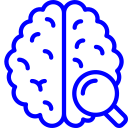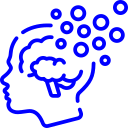Delusions, which are irrational thoughts, ideas, and beliefs that persist despite evidence to the contrary, are the principal symptom of delusional disorder. Treatment for delusional disorder might be difficult because many people suffering from this illness are unable to realize the errors in their thinking or the need for assistance. A mix of medicine and cognitive behavioral psychotherapy is typically used to treat patients effectively.
Therapies focus on understanding harmful attitudes and actions and finding ways to change them. With this knowledge, patients can advance in treatment by strengthening their decision-making abilities and problem-solving capabilities. Each person with a delusional disorder will likely encounter various symptoms. Delusions could make them anxious, disrupt their sleep, or make it difficult to concentrate and medication can address these issues.








